ジョン・ロック「英国‐経験論の父」 デカルト・ルソーらとの対話とは
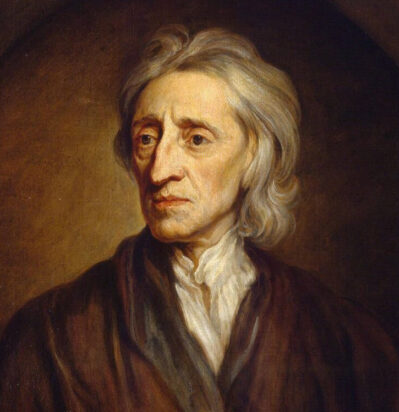
John Locke: The Father of Empiricism in England and His Dialogue with Descartes and Rousseau
イントロダクション
ジョン・ロックとは、17世紀のイギリスの哲学者で、自然法や社会契約論、啓蒙思想の代表的な人物です。
Introduction
John Locke was a 17th-century British philosopher renowned for his theories on natural law, social contract, and Enlightenment ideals.

An Essay Concerning Human Understanding
ジョン・ロックは、人間は自然状態において自然権を持ち、それを守るために政府と契約するという考えを提唱しています。
John Locke advocated the idea that humans possess natural rights in a state of nature and enter into a social contract with governments to secure those rights.
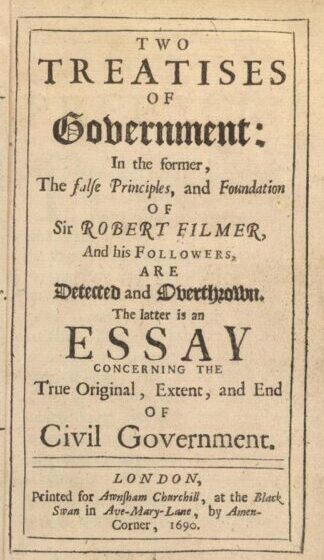
First Edition of “Two Treatises of Government”
また、知識は経験に基づくという経験論の立場をとり、心は白紙(タブラ・ラサ)であると主張しました。主著に『人間知性論』(旧訳は『人間悟性論』)、『統治二論』、『教育論』などがあります。
He also took an empirical stance that knowledge is based on experience, asserting that the mind is a blank slate (tabula rasa). His major works include “An Essay Concerning Human Understanding” (formerly translated as “An Essay Concerning Human Understanding”), “Two Treatises of Government,” and “Some Thoughts Concerning Education.”
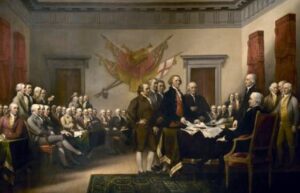
“The Declaration of Independence” (painting by John Trumbull, 1819) This painting is used on the reverse side of the $2 bill.
彼の思想は、アメリカ独立革命やフランス革命などの政治的な動きに大きな影響を与えました。
His ideas greatly influenced political movements such as the American Revolution and the French Revolution.
ジョン・ロックの生涯とその背景
ジョン・ロックは1632年8月29日にイングランドのサマセット州リントンで、法律家の息子として産まれました。
オックスフォード大学に進学して医学を学びましたが、後に哲学や自然科学に興味を持つようになりました。
ロックの生涯は、17世紀のイギリスの時代背景と密接に結びついています。
当時のイギリスは激しい政治的・宗教的な葛藤の時期でした。
王政を巡る対立やプロテスタントとカトリックの対立などが激化しており、ロックはそのような環境下で哲学的・政治的な思想を主張しました。
ロックの思想は、経験論や自由主義の理念を基盤としており、当時のイギリスやヨーロッパの政治的な転換期において大きな影響力を持ちました。
教育と初期のキャリア
The Life and Background of John Locke
John Locke was born on August 29, 1632, in Wrington, Somerset, England, as the son of a lawyer.
He attended Oxford University to study medicine but later developed an interest in philosophy and natural sciences.
Locke’s life was closely tied to the backdrop of 17th-century England, a time of intense political and religious conflict.
The period was marked by severe clashes over monarchy and the rivalry between Protestants and Catholics, within which Locke formulated his philosophical and political ideas.
Locke’s philosophy, grounded in empiricism and the principles of liberalism, significantly influenced the political transformations occurring in England and Europe at the time.
Education and Early Career

University of Oxford
ジョン・ロックは、1646年にオックスフォード大学に入学し、そこで哲学、神学、医学を学びました。
1656年に大学を卒業した後、ロックはオックスフォード大学で講師を務めました。
その後、地元貴族に思想を気に入られ、私設秘書官兼主治医として仕えます。
1668年には、王立協会の会員に選出されました。
ロックの初期のキャリアは、科学革命の影響を強く受けていました。
ロックは、科学革命によって確立された経験論の立場を支持し、人間の認識は経験からのみ生じると主張しました。
また、ロックは、トマス・ホッブズの社会契約論の影響も受けていました。
ロックは、ホッブズと同様に、政府は人民から権力を委任されたもので、人民の同意なしに政府は存在できないと主張しました。
ロックの初期のキャリアは、彼の思想の基礎を築いた重要な時期で、それらの思想を基に多くの著作を発表しました。
ロックの政治活動と流浪
ジョン・ロックは1666年にロンドンで第一次イングランド内戦の後の政治的な動乱に巻き込まれ、王党派の指導者であるアシュリー卿(後のシャフツベリ伯爵)の私設秘書官兼主治医となりました。
彼はアシュリー卿とともに王政復古期と名誉革命期のイングランド政治に深く関与しましたが、1683年に反逆罪の容疑で国外逃亡することを余儀なくされました。
John Locke enrolled at Oxford University in 1646, where he studied philosophy, theology, and medicine.
After graduating in 1656, he became a lecturer at Oxford.
Later, he was favored by a local nobleman and served as a private secretary and personal physician.
In 1668, Locke was elected as a fellow of the Royal Society.
Locke’s early career was heavily influenced by the Scientific Revolution.
He supported the empiricism established by the Scientific Revolution, asserting that human knowledge arises solely from experience.
Locke was also influenced by Thomas Hobbes’ social contract theory.
Like Hobbes, Locke argued that government derives its power from the consent of the governed and cannot exist without their approval.
His early career was a crucial period that laid the foundation for his ideas, leading to many published works.
Locke’s Political Activities and Exile
John Locke became entangled in the political turmoil following the First English Civil War in 1666, becoming a private secretary and personal physician to the Royalist leader, Lord Ashley (later the Earl of Shaftesbury).
He, alongside Lord Ashley, became deeply involved in the politics of the Restoration and the Glorious Revolution in England, but in 1683, he was forced to flee abroad under suspicion of treason.

オランダ、ゼーラント州に到着したウィリアム3世(1691年)
The Glorious Revolution: William III Arrives in Zeeland, Netherlands (1691)
彼はオランダで5年間を過ごしましたが、1688年に名誉革命が起こり、ウィリアム3世とメアリー2世がイングランド王位に就くと、帰国しました。
彼はその後、政府の要職に就き、教育や経済などの分野で多くの著作を残しました。
彼の晩年と死
晩年のロックは、執筆活動をつづけながら友人や知識人との交流を深め、彼の思想的なアイデアを議論する場を持ちました。
彼は広範な人脈を築き、フランスの哲学者ヴォルテールやアイルランドの哲学者バークリーといった人物との対話も行いました。
また、1704年10月28日に亡くなるまで通商植民地委員会の委員としても活動しています。
He spent five years in the Netherlands, but when the Glorious Revolution occurred in 1688 and William III and Mary II ascended to the English throne, he returned to England.
He then held key government positions and authored numerous works on education and economics.
His Later Years and Death
In his later years, Locke continued to write and engaged in discussions with friends and intellectuals, sharing and debating his ideas.
He built an extensive network, conversing with notable figures such as French philosopher Voltaire and Irish philosopher Berkeley.
Locke also served on the Board of Trade until his death on October 28, 1704.
ロックの主要な哲学的思想
ロックの主要な哲学的思想には、経験論、知識の理論、政治哲学論、宗教哲学論、教育論等があります。
これらの思想は、自由主義や人権の概念の発展に大きな影響を与え、近代政治思想の基礎を築いたとされています。
ロックの思想はアメリカ独立宣言やフランス革命などの運動にも影響を与え、現代の政治哲学や人権の議論においても重要な位置を占めています。
これらの思想を詳しく解説していきます。
「経験論」の概念とロックの貢献
ロックの経験論とは、人間の認識は経験からのみ生じるという考えです。
ロックは、人間の心は生まれたときは白紙であり、経験によって知識が獲得されると考えました。
また、人間の認識は、感覚経験と反省経験から生じると考えました。
感覚経験とは、外界からの情報を受け入れる経験であり、反省経験とは、自分の心の内面を観察する経験です。
ロックは、人間は感覚経験と反省経験によって、外界を認識し、自分の心を理解することができると考えました。
ロックの経験論は、当時の哲学の主流であった理性論と対立しました。
理性論は、人間の認識は理性によってのみ生じるという考えです。
ロックは、理性論を批判し、人間の認識は経験によってのみ生じると考えました。
ロックの経験論は、科学革命の進展によって確立されたものであり、現代の科学にも大きな影響を与えました。
「知識の理論」:理解と認識
ロックは、人間の知識を三つの種類に分けました。
それは、直感的知識、論証的知識、感覚的知識です。
直感的知識とは、自明な真理や定義を直接認識することです。
例えば、「白は黒ではない」という命題は、直感的に真であるとわかります。
論証的知識とは、直感的知識に基づいて推論や演繹を行うことです。
例えば、「白は色である」という命題は、直感的に真である「白は黒ではない」という命題と、「黒は色である」という命題から論証的に導かれます。
感覚的知識とは、外界の事物や現象を、五感を通して知覚することです。
例えば、「この花は赤い」という命題は、目で見た花の色に基づいて感覚的に判断されます。
「政治哲学」:自然権と社会契約
ロックの政治哲学は、自然法と自然権、社会契約、政府の正当性と限界、抵抗権などの重要な概念を提唱したものです。
ロックは、人間は自然状態で自由で平等な存在であり、生命・自由・財産という不可侵の自然権を持っていると考えました。
しかし、自然状態では自然権を保障する司法機関がなく、人々は互いに紛争を起こす危険性があります。
そこで、人々は自然権の一部を放棄して社会契約を結び、政府に服従することに同意します。
政府の役割は、人々の自然権を守ることであり、そのためには立法・執行・司法の三権分立が必要になります。
もし政府が人々の自然権を侵害したり、社会契約に違反したりした場合、人々には政府に対する抵抗権や革命権があるという主張です。
「宗教哲学」:信仰と理性
ロックの宗教哲学は、彼の主著の一つである『寛容についての書簡』などに詳しく記載されています。
ロックはまず、宗教的寛容の重要性を強調しました。
彼は異なる宗教的信条や信念を持つ人々に対して、互いの信仰を尊重する必要があると主張しました。
また、信仰の問題は個人の内面的な問題であり、他人に強制するべきではないと考えました。
ロックの宗教的寛容の思想は、後の宗教の自由と平等の原則に影響を与えました。
次にロックは宗教と政治を分離することの重要性を主張しました。
彼によれば、政府は宗教的な信条や教義を強制することはできず、政治的な権力の範囲を超えて信仰の問題に干渉するべきではないとしました。
この思想は後の世俗主義の概念や宗教の自由につながる考え方となりました。
そして、ロックは理性と宗教の関係についても考えました。
彼は人間の理性によって神の存在や宗教的な真理を理解できると主張しました。
信仰と理性が対立するのではなく、むしろ互いに補完しあっていると考え、宗教的な信仰が合理的であることと、個人の自由な信仰との調和を追求しました。
ロックの宗教哲学は、その時代の宗教的寛容の問題に対する理性的なアプローチを示しています。
彼の思想は後の啓蒙時代の宗教哲学や自由主義の発展に影響を与え、宗教の自由や個人の信仰の権利を重視する考え方として広まっていきました。
「教育論」:子どもの教育と道徳教育
Locke’s Key Philosophical Ideas
Locke’s main philosophical ideas include empiricism, theory of knowledge, political philosophy, religious philosophy, and educational theory.
These ideas significantly influenced the development of liberalism and human rights, forming the foundation of modern political thought.
Locke’s philosophy impacted movements like the American Declaration of Independence and the French Revolution, and continues to be vital in contemporary discussions on political philosophy and human rights.
The Concept of Empiricism and Locke’s Contribution
Locke’s empiricism posits that human knowledge arises solely from experience.
He believed that the human mind is a blank slate at birth and knowledge is acquired through experience.
Locke identified two types of experiences: sensory experience, which involves receiving information from the external world, and reflective experience, which involves observing one’s inner thoughts.
He argued that through sensory and reflective experiences, humans can understand the external world and their own minds.
Locke’s empiricism opposed the prevailing rationalism of his time, which held that knowledge is derived solely from reason. Locke critiqued rationalism, asserting that knowledge comes only from experience.
His empiricism, established during the Scientific Revolution, greatly influenced modern science.
Theory of Knowledge: Understanding and Perception
Locke divided human knowledge into three types: intuitive, demonstrative, and sensory knowledge.
Intuitive knowledge involves direct recognition of self-evident truths or definitions, such as understanding that “white is not black.”
Demonstrative knowledge is based on reasoning or deduction from intuitive knowledge. For example, the statement “white is a color” can be deduced from the intuitive truth “white is not black” and “black is a color.”
Sensory knowledge involves perceiving external objects or phenomena through the five senses. For instance, the statement “this flower is red” is a sensory judgment based on visual perception of the flower’s color.
Political Philosophy: Natural Rights and Social Contract
Locke’s political philosophy introduced key concepts like natural law and natural rights, social contract, the legitimacy and limits of government, and the right to resistance.
He believed that in a state of nature, humans are free and equal, possessing inalienable rights to life, liberty, and property.
However, in a natural state, there is no judicial system to protect these rights, leading to potential conflicts. Thus, people agree to a social contract, surrendering some natural rights to form a government that protects their remaining rights.
The government’s role is to safeguard these rights through a separation of powers into legislative, executive, and judicial branches. If the government violates these rights or breaches the social contract, the people have the right to resist or overthrow it.
Religious Philosophy: Faith and Reason
Locke’s religious philosophy is detailed in works like “A Letter Concerning Toleration.”
He emphasized the importance of religious tolerance, advocating for respect among individuals with different religious beliefs and arguing that faith should not be imposed on others.
Locke’s ideas on religious tolerance influenced later principles of religious freedom and equality.
He also argued for the separation of religion and politics, asserting that the government should not enforce religious beliefs or interfere in matters of faith, a concept that laid the groundwork for secularism and religious freedom.
Locke considered the relationship between reason and religion, claiming that human reason could comprehend the existence of God and religious truths. He saw faith and reason as complementary, seeking a balance between rational religious belief and individual freedom of faith.
His religious philosophy offered a rational approach to religious tolerance, influencing Enlightenment thought and the development of liberal ideas, emphasizing the importance of religious freedom and individual belief.
Educational Theory: Child Education and Moral Instruction
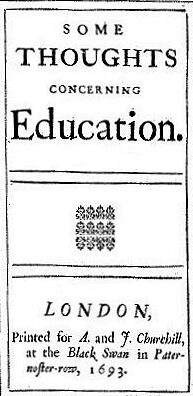
Title Page of the First Edition of “Some Thoughts Concerning Education” (1693)
ロックの教育論は、『教育に関するの考察』に基づいています。
この著作は、ロックが友人のエドワード・クラークに宛てた手紙をまとめたもので、クラークの息子の教育に関する助言を含んでいます。
ロックの教育論は、当時の教育制度や教育方法に対する批判と、自然法や理性に基づく新しい教育理念を提唱するものでした。
ロックは、教育の目的は人間を幸福にすることであり、そのためには知識だけでなく徳や身体も養わなければならないと考えました。
また、教育は個人の能力や性格に応じて柔軟に行うべきであり、暴力や強制ではなく愛情や説得を用いるべきだと主張しました。
ロックの教育論は、啓蒙思想や自由主義の先駆けとして評価されており、現代の教育学にも影響を与えています。
Locke’s educational theory is based on his work “Some Thoughts Concerning Education.”
This book is a collection of letters Locke wrote to his friend Edward Clarke, offering advice on the education of Clarke’s son.
Locke’s educational theory critiques the contemporary education system and methods, proposing new educational principles based on natural law and reason.
He believed that the goal of education is to make individuals happy, which requires nurturing virtues and physical well-being, not just imparting knowledge.
Locke also emphasized that education should be flexible, tailored to each individual’s abilities and character, and conducted with love and persuasion rather than violence and coercion.
His educational ideas are considered precursors to Enlightenment thought and liberalism and have influenced modern pedagogy.
ジョン・ロックの著作とその影響
ロック著作は、政治的・宗教的・教育的な問題に対する啓蒙的な見解を提供し、多くの人々に影響を与えました。
特に、代表作である『統治二論』は、市民革命や権利宣言、アメリカ独立宣言などの歴史的な出来事において重要な役割を果たしました。
また、彼の『人間悟性論』(『人間知性論』)は、心理学や認識論の発展に寄与し、デカルトやヒュームなどの後続の哲学者にも影響を及ぼしています。
ロックの著作は、現代の民主主義や人権、教育などの分野にも深く関わっており、西洋思想史における最も重要な人物の一人として評価されています。
「人間知識の試論」の概要と影響
『人間知性論』(『人間悟性論』)とも呼ばれているこの著作では、人間の知識の起源と範囲、および知識の根拠と正当性について論じられています。
ロックは、人間は生まれながらにして何も知らない(タブラ・ラサ)という立場をとり、すべての知識は経験から得られると主張しています。
経験には感覚経験と内省経験の二種類があり、それらから単純な観念が生じ、単純な観念は組み合わされたり変化させられたりして、複合的な観念を形成します。
知識とは、観念間の合意や不合意の認識であり、その程度によって直観的知識、論証的知識、感覚的知識の三種類に分けられると説いています。
ロックはまた、物質の本質や神の存在など人間が知ることができないことや疑わしいことについても述べています。
ロックの人間悟性論は、経験論や啓蒙思想において重要な役割を果たしました。
ロックの思想は、ヒュームやカントなどの後続の哲学者によって発展させられ、自然権や社会契約論などの政治哲学にも影響を及ぼしました。
「統治二論」の概要と影響
ロックの統治二論は、1689年に著された政治哲学の名著です。
この本は、王権神授説を批判し、国家の正当性を社会契約説や自然法思想から説明しました。
統治二論は、第一論と第二論の二篇からなります。
第一論では、ロバート・フィルマーが主張した「国王の絶対的支配権は、人類の祖アダムが彼の子供に対する父権に由来する」という王権神授説を聖書の記述や論理的な根拠から反駁しました。
第二論では、人間は自然状態において自然法に従って自由で平等な存在であり、自分の生命や財産を守るために社会契約を結んで政治社会を形成し、立法権や執行権などの政治権力を委任したという仮説を立てました。
ロックは、政治権力は人民の共通の利益に基づいて行使されるべきであり、もし政府が自然法を侵害したり人民の信託に背いたりした場合、人民は抵抗権や革命権を行使して政府を変革することができると主張しました。
John Locke’s Works and Their Influence
Locke’s writings offered enlightening perspectives on political, religious, and educational issues, influencing many people.
His seminal work, “Two Treatises of Government,” played a crucial role in historical events like the Glorious Revolution, the Declaration of Rights, and the American Declaration of Independence.
Additionally, his “An Essay Concerning Human Understanding” contributed to the development of psychology and epistemology, impacting later philosophers such as Descartes and Hume.
Locke’s works are deeply connected to modern democracy, human rights, and education, making him one of the most important figures in Western intellectual history.
Overview and Impact of “An Essay Concerning Human Understanding”
In “An Essay Concerning Human Understanding,” Locke explores the origin, scope, and legitimacy of human knowledge.
Locke asserts that humans are born with a blank slate (tabula rasa) and that all knowledge comes from experience.
He identifies two types of experiences: sensory and reflective. Simple ideas arise from these experiences, which can be combined and altered to form complex ideas.
According to Locke, knowledge is the recognition of agreement or disagreement between ideas and can be divided into three types: intuitive, demonstrative, and sensory knowledge.
Locke also addresses matters that are uncertain or beyond human understanding, such as the essence of matter and the existence of God.
His essay was pivotal in the development of empiricism and Enlightenment thought.
Locke’s ideas were further developed by philosophers like Hume and Kant and influenced political philosophy, including natural rights and social contract theories.
Overview and Impact of “Two Treatises of Government”
Locke’s “Two Treatises of Government,” written in 1689, is a landmark work in political philosophy.
This book criticizes the divine right of kings and explains the legitimacy of the state through social contract theory and natural law.
The “Two Treatises” is divided into two parts.
The First Treatise refutes Robert Filmer’s claim that monarchs have absolute power derived from the paternal authority of Adam over his children, using biblical and logical arguments.
In the Second Treatise, Locke proposes that in the state of nature, humans are free and equal under natural law, and they form political societies by agreeing to a social contract to protect their lives and property, delegating legislative and executive powers to the government.
Locke argues that political power should be exercised for the common good, and if the government violates natural law or betrays the people’s trust, the people have the right to resist and revolutionize the government.
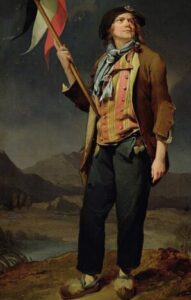
French Revolution: “Singer Chenard Dressed as a Sans-culotte” by Louis-Léopold Boilly (1792)
統治二論の影響は非常に大きく、自由主義や人権の概念の発展に大きな影響を与えました。
この著作はアメリカ独立宣言やフランス革命の思想的基盤となり、近代の政治哲学や社会契約説の理論の重要な源泉とされています。
また、権力の制約と市民の権利保護に関する考え方を広め、現代の民主主義や法の支配の原則の基盤となっています。
The Impact of Two Treatises of Government
The influence of the Two Treatises of Government was profound, significantly shaping the development of liberalism and the concept of human rights.
This work laid the ideological groundwork for the American Declaration of Independence and the French Revolution, establishing itself as a crucial source of modern political philosophy and social contract theory.
Moreover, it propagated ideas concerning the restraint of power and the protection of citizen rights, forming the foundation for contemporary democracy and the principles of rule of law.
ジョン・ロックと他の哲学者との関係
ロックと他の哲学者との関係は、多様で複雑です。
例えば、デカルトやスピノザなどの大陸合理論者とは対立し、彼らの演繹的な方法や抽象的な概念に批判的でした。
一方、ヒュームやカントなどの後続の経験論者には、強い影響を与えました。
彼は、ヒュームが「因果関係」や「自我」などの概念をさらに分析し、カントが「純粋理性批判」で経験と理性の関係を再構築するきっかけを作りました。
また、ロックは、ホッブズやルソーなどの政治哲学者とも対話し、自然状態や社会契約、政府の正当性などの問題について議論しました。
ジョン・ロックは、近代哲学の重要な人物であり、他の哲学者との関係を通じて、哲学史に多大な影響を与えました。
ロックとデカルト:経験論と合理論
John Locke and His Relationship with Other Philosophers
John Locke’s relationships with other philosophers were diverse and intricate.
For instance, he opposed continental rationalists like Descartes and Spinoza, criticizing their deductive methods and abstract concepts.
On the other hand, Locke profoundly influenced empiricists who came after him, such as Hume and Kant.
He prompted Hume to further analyze concepts like “causation” and “self,” while providing Kant with the foundation to reconstruct the relationship between experience and reason in his “Critique of Pure Reason.”
Moreover, Locke engaged in dialogues with political philosophers like Hobbes and Rousseau, discussing issues such as the state of nature, social contract, and the legitimacy of government.
John Locke stands as a pivotal figure in modern philosophy, exerting significant influence on the history of philosophy through his interactions with other thinkers.
Locke and Descartes: Empiricism vs. Rationalism
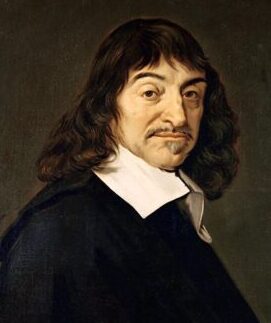
René Descartes (French: René Descartes, March 31, 1596 – February 11, 1650)
ロックとデカルトは、人間の認識能力や自然法の根拠について異なる見解を持っていました。
ロックは、経験論の立場から、人間は生まれながらにして何も知らないと主張しています。
すべての知識は感覚や反省によって得られるものであり、先天的なものはないと考えました。
デカルトは、合理論の立場から、人間は生まれながらにして一定の真理を持っていると主張しました。
すべての知識は理性や演繹によって得られるものであり、感覚や経験は信頼できないと考えました。
ロックとデカルトの対立は、認識論や形而上学の分野で多くの議論を引き起こしました。
ロックとホッブズ:自然状態と社会契約
Locke and Descartes: Perspectives on Human Understanding and Natural Law
Locke and Descartes held contrasting views on human cognitive abilities and the foundation of natural law.
Locke, from an empirical standpoint, argued that humans are born with a blank slate, knowing nothing initially.
All knowledge is acquired through senses and reflection; there is nothing innate, he believed.
Descartes, on the other hand, from a rationalist perspective, asserted that humans are born with certain innate truths.
All knowledge is gained through reason and deduction; he distrusted senses and experience.
The clash between Locke and Descartes sparked numerous debates in the fields of epistemology and metaphysics.
Locke and Hobbes: State of Nature and Social Contract

Thomas Hobbes (1588 April 5 – 1679 December 4)
ロックとホッブズは、自然法や社会契約論などの重要な概念を提唱しましたが、人間の本性や政府の正当性について異なる見解を持っていました。
ホッブズは、人間は自然状態では争いや暴力に満ちた「万人の万人に対する闘争」の状態にあると考えました。
したがって、人間は自分の権利を放棄して絶対的な君主に服従することで、平和と秩序を得ることができると主張しています。
一方、ロックは、人間は自然状態では自由で平等で理性的な存在であり、生命・自由・財産という自然権を持っていると考えました。
したがって、人間は自分の権利を一部譲渡して共同体を形成し、自然権を守るために政府を設立することができると主張しています。
しかし、政府が自然権を侵害した場合には、人民には抵抗や革命の権利があるとも主張しました。
主張は違えども、ロックとホッブズは、現代の民主主義や専制主義の基礎を築いたと言えます。
ロックとルソー:自由と平等
Locke and Hobbes: Views on Human Nature and Government
Hobbes and Locke both advocated important concepts like natural law and social contract theory, but they held differing views on human nature and the legitimacy of government.
Hobbes believed that in the state of nature, humans exist in a constant “war of all against all,” characterized by strife and violence. Therefore, he argued that humans relinquish their rights to an absolute sovereign to attain peace and order.
In contrast, Locke viewed humans in the state of nature as free, equal, and rational beings endowed with natural rights to life, liberty, and property. Consequently, Locke proposed that individuals enter into social contracts, partially surrendering their rights to form communities and establish governments to protect these natural rights.
Despite their differences, both Hobbes and Locke laid the groundwork for modern democracy and authoritarianism.
Locke and Rousseau: Freedom and Equality
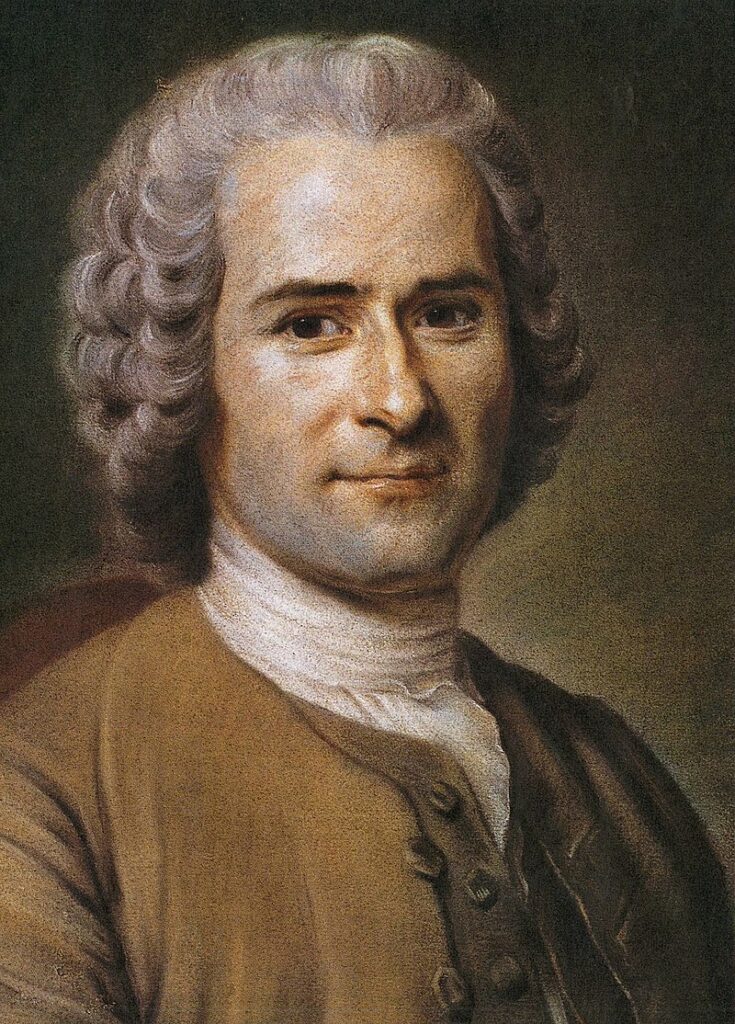
Portrait of Rousseau
ロックとルソーは、自然法や社会契約論、人間の自然状態などの概念を用いて、政治的権利や義務の根拠を論じましたが、彼らの考え方にも重要な相違点があります。
ロックは、自然状態では人間は自由で平等であるが、生命や財産を守るために社会契約を結び、政府に一部の権力を委譲すると主張しています。
ルソーは、自然状態では人間は無邪気で幸福であるが、文明化の過程で不平等や不自由が生じると考えました。
彼は、社会契約によって一般意志を形成し、それに従うことで自由と平等を回復することができると説いています。
このように、ロックとルソーは、人間の本性や社会のあり方について異なる見解を持ち、それが彼らの政治思想に影響を与えました。
ジョン・ロックの哲学を理解するための資料
Here is the translation:
Locke and Rousseau: Concepts in Political Philosophy
Locke and Rousseau discussed the foundations of political rights and duties using concepts such as natural law, social contract theory, and the state of nature, but they held significant differences in their perspectives.
Locke argued that in the state of nature, humans are inherently free and equal, but they form social contracts to protect life and property, thereby delegating some authority to government.
Rousseau believed that in the state of nature, humans are innocent and happy, but civilization introduces inequality and restrictions. He proposed that through a social contract, formed by the general will, freedom and equality could be restored.
Thus, Locke and Rousseau had distinct views on human nature and the structure of society, influencing their respective political philosophies.
Resources for Understanding John Locke’s Philosophy

John Locke (John Locke FRS, August 29, 1632 – October 28, 1704)
ジョン・ロックの哲学を理解するための資料はとても多く、様々なジャンルにわたっています。
ここではほんの一部ですが参考になりそうなものを紹介したいと思います。
ロックの思想を学ぶ資料
・ジョン・ロック伝 みすず書房 著作:モーリス・クランストン 和訳:小林茂樹 田中浩 他
・完訳 統治二論 岩波文庫 著作:加藤節
・ロック入門講義 イギリス経験論の原点 ちくま学芸文庫 著作:冨田恭彦
Here are some resources to understand John Locke’s philosophy, spanning various genres:
Materials for Studying John Locke’s Thought:
- “John Locke Biography” by Maurice Cranston, translated by Shigeki Kobayashi, Hiroshi Tanaka, and others (published by Misuzu Shobo).
- “Second Treatise of Government” complete translation, published by Iwanami Bunko, authored by Setsu Kato.
- “Introduction to Locke’s Lectures: The Origins of British Empiricism” published by Chikuma Gakugei Bunko, authored by Yasuhiko Tomita.

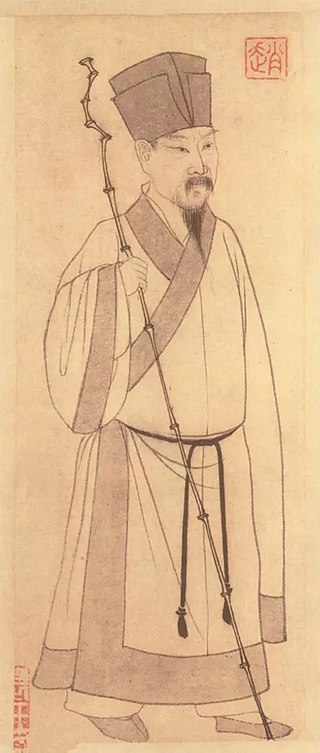
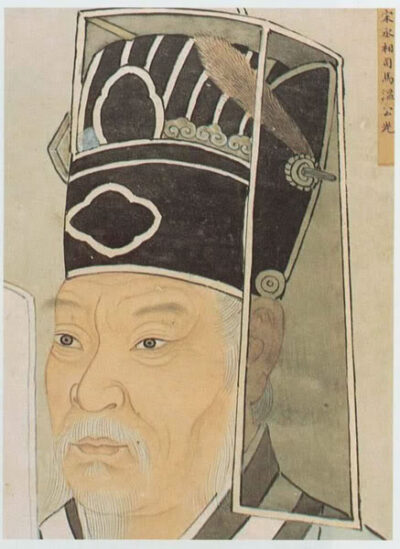
Warning: Undefined variable $comment_form_sns_tags in /home/ktsky/philosophy-kayak.com/public_html/wp-content/themes/shaper/comments.php on line 27
1件のコメントがあります